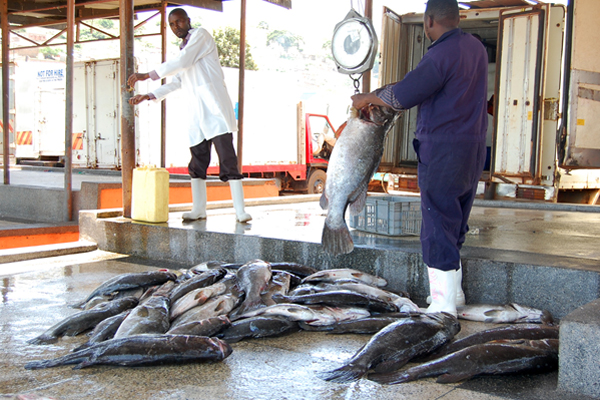Fish exports falling again - BoU

Fish exports have been reducing in the last three years, threatening the recovery of an industry that had nearly collapsed. PHOTO | FILE
Fish exports have dipped again after years of sustained recovery from a near collapse in the early 2000s.
The fisheries industry had in the early 2000s been one of Uganda’s largest foreign exchange earners but experienced a massive slump due to depletion caused by poor fishing methods.
However, according to data from Bank of Uganda for the period ended July, fish exports have fallen again declining by 7,992 tonnes, indicating a cumulative loss of Shs99b. .
During the period between June 2020 and July 2021, according to data from the Central Bank, at least 15,149 tonnes of fish worth $118.6m (Shs419b) were exported compared to 23,141 tonnes worth $146m (Shs518b) that were exported in the same period during the previous year.
This was a reduction from the 30,004 tonnes worth $186m (Shs660b) that had been exported in the same period between 2018 and 2019.
The trend indicates that during the last three years fish exports and value have been declining, dropping by 98 per cent and 56 per cent, respectively.
In the early 2000s the fish industry experienced a number of challenges, leading to the closure of at least 13 fish processing factories .
However, the industry had started to recover by around 2015 due to a sustained fight by the government to reduce poor methods of fishing that had led to near depletion of some fish species.
The new trend, according to experts, presents a challenge to an industry that has been recovering from more than a decade of massive decline, which had threatened one of the country’s largest forex exchange earners.
Mr Sujal Goswami, the Uganda Fish Processors and Exporters Association chairman, said the fall has been due to a reduction of the fish resource, which has increasingly become a concern to both processors and exporters.
“The fish resource has drastically dropped. This is a major concern to both processors and exporters,” he said, adding that before the fall, most factories had been getting between 15 and 20 tonnes per day but this has since dropped to about three tonnes.
Mr Goswami also noted an increase in smuggling, which has grown in the last five years despite government’s efforts to eliminate the vice.
However, he also said that Covid-19 might have worsened the already dire situation due to restrictions placed on both international and local travel.
“It is still difficult to trade in our market destinations and the situation is not about to change,” Mr Goswami said.
The fisheries sector has in the last 15 years played an important social and economic role in Uganda.
However, the sector has been experiencing a lot of challenges, falling to totally recover from a huge slump in the past five years.
Nearly 50 per cent of Ugandans depend on fish for proteins and government is seeking to strengthen the sector through the Fisheries and Aquaculture Bill 2018 that is currently before Parliament.
The Bill seeks to strengthen current regulations on management of commercial fish production, sales, post-harvest handling, fish transportation, surveillance and control.
dnakaweesi@ug.nationmedia.com

